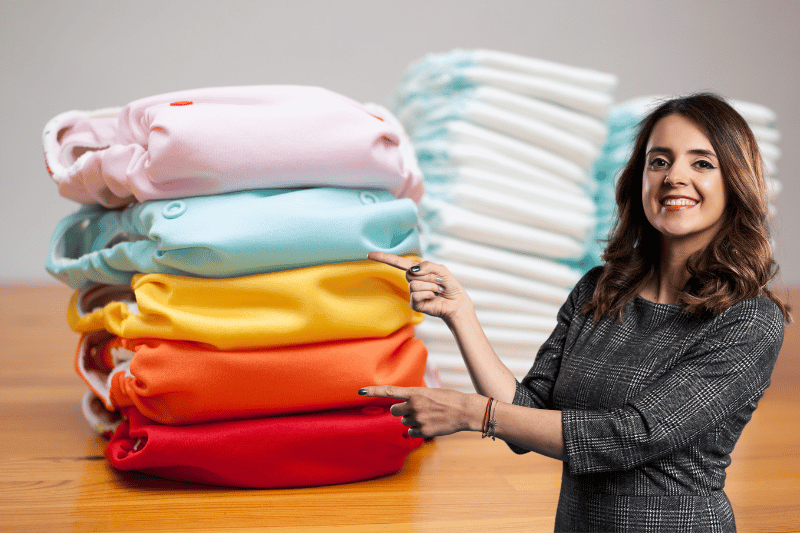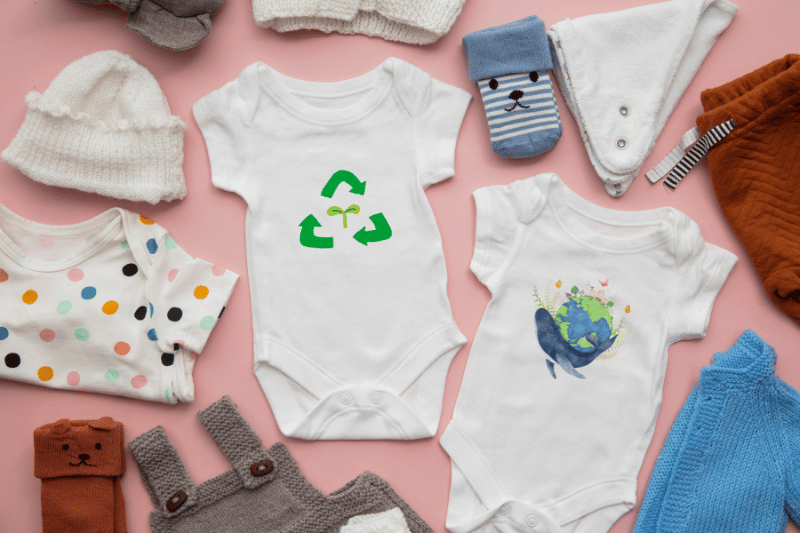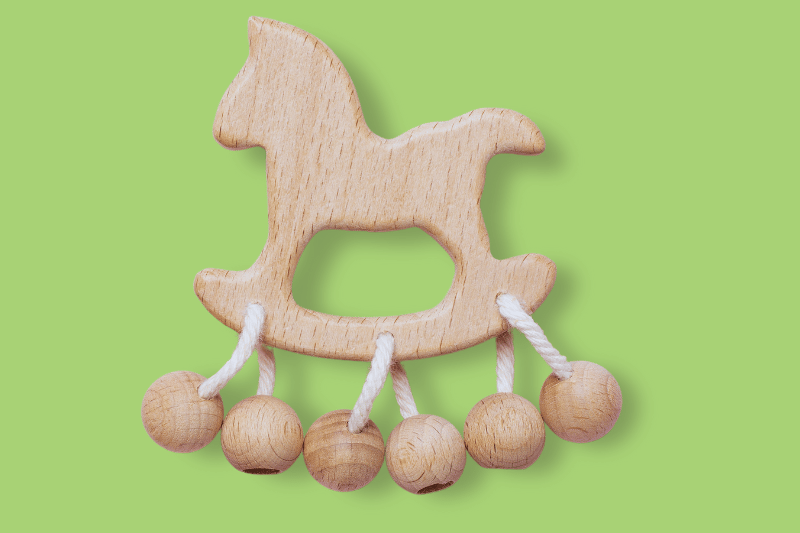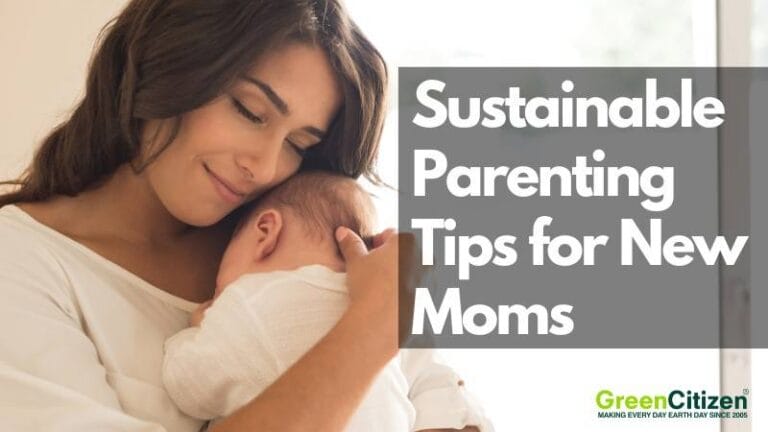Becoming a mom sparks an intense desire to give your children the very best, including a healthier, greener planet. Our world shows the marks of past (poor!) choices, but we can start fresh today.
When I first became a parent, I wondered, “How can I save the planet while saving my sanity?” Here are some easy tips for new parents on sustainable parenting.
My first clue was to start with eco-friendly baby products. I swapped disposable diapers for cloth ones, and yes, it’s more laundry, but my baby’s smile makes it worth it.
Recycle whenever you can. I turned sorting trash into a fun game for my toddler – who knew recycling could be a toddler’s favorite activity?
And don’t get me started with the trends of the toy industry!
Let me share my experience of how I am trying my best to become a sustainable parent.
Key Takeaways
- Choose eco-friendly cloth diapers instead of the disposable ones to reduce waste and exposure to harmful chemicals.
- Opt for a minimalist baby wardrobe with organic or second-hand clothes to save money and protect the environment.
- Go for wooden toys over plastic ones to ensure safer playthings and support sustainable forestry practices.
Organic Cloth Diapers: A Sustainable Choice for Your Baby

Diapers are one of the most wasteful parts of raising a child. On average, a baby uses from 6,000 to 8,000 disposable diapers before potty training. That’s a mountain of waste, taking around 500 years to decompose.
Disposable diapers are often made from fossil fuels, turning into plastics that harm our environment. But it wasn’t always like this. Before the 1950s, cloth diapers were the norm, and it’s a practice worth reconsidering.
Modern cloth diapers have come a long way. They’re now user-friendly and, thanks to efficient washing machines, there’s no need for boiling diapers. Cloth diapers cut waste and reduce your baby’s exposure to harmful chemicals.
Plus, they can save you thousands of dollars.
I remember feeling overwhelmed at first. Switching to cloth diapers seemed like a big leap. But once I got the hang of it, it became second nature.
Of course, balance is essential. I’m not perfect, and I keep a few disposable diapers on hand for emergencies or sleepovers. When I do use disposables, I opt for eco-friendly ones made from 100% FSC-certified wood pulp.
These eco-friendly organic diapers are a fantastic alternative to traditional ones. They help us care for the planet while meeting our baby’s needs.
Sustainable parenting is all about small, thoughtful choices. Each step, no matter how small, makes a difference. Let’s make those steps together.
A Minimalist Baby Wardrobe: Less is More for the Environment

When it comes to dressing your little ones, going green is a win-win for both your baby and the planet. Opting for eco-friendly baby clothes is better for the environment and safer for your child.
Organic baby clothes are a fantastic choice because they’re free from harmful pesticides and chemicals. This is especially important for babies, who have a higher skin surface-to-body volume ratio, making them more vulnerable to absorbing toxins.
However, second-hand baby clothes are a wonderful alternative if organic clothing stretches your budget.
They’re not only budget-friendly but also kinder to your baby’s skin. Since second-hand clothes have been washed numerous times, most of the harmful chemicals are rinsed away. Plus, with how quickly babies outgrow their outfits, recycling gently used garments just makes sense.
Thrift stores, consignment shops, and online marketplaces are great places to find high-quality, gently used baby clothes at a fraction of the cost.
You can also extend the life of your baby’s clothes by taking good care of them. Use eco-friendly laundry detergents and wash clothes in cold water to save energy. Avoid using fabric softeners and dryer sheets, which can leave behind residues that may irritate your baby’s sensitive skin.
As your baby grows, you can continue to make eco-friendly choices. When your little one outgrows their clothes, consider donating or selling them to keep the cycle going. This helps other families and reduces waste and the demand for new clothing production.
Another great tip is to embrace a minimalist wardrobe for your baby.
Babies don’t need an extensive wardrobe; a few well-chosen, versatile pieces can go a long way. This approach simplifies your life and reduces the environmental impact of clothing production and disposal.
Embrace Wooden Toys for a Greener Future

If you’re aiming to be a more eco-friendly parent, one impactful step is to avoid plastic toys for your kids. Plastic toys, made from fossil resources like coal, gas, and crude oil, often contain harmful chemicals such as Bisphenol A (BPA) and Polyvinyl Chloride (PVC). These chemicals can negatively affect health, so avoiding them in your child’s playthings is best.
So, what are the alternatives?
Wooden toys are a fantastic eco-friendly option. They’re durable, attractive, and offer a more hands-on play experience. However, they can be more expensive.
A personal tip: avoid buying wooden toys from places like Aliexpress or Wish.
Safety standards in China differ from those in the EU or US. Instead, invest in reputable brands to ensure the toys are free from harmful substances. By choosing quality wooden toys, you’re making a healthier choice for your children and positively impacting the environment.
Buying wooden toys also supports sustainable forestry. Many good brands use wood from responsibly managed forests, ensuring eco-friendly production. Plus, wooden toys often have a timeless charm, becoming treasured heirlooms passed down through generations, which reduces waste.
Another plus of wooden toys is their educational value. They often stimulate creativity and problem-solving skills, encouraging open-ended play. This is different from many plastic toys, which usually have predefined functions and electronic parts, limiting creativity and increasing screen time.
Wooden toys are also easier to repair than plastic ones. If a wooden toy breaks, a bit of glue or a replacement part can fix it. Broken plastic toys, on the other hand, often end up in the trash.
Choosing wooden toys means providing safer playthings for your kids and contributing to a more sustainable future. Let’s make these small, impactful steps together.
Take the First Steps Towards Sustainable Parenting
As a new mom, the journey toward sustainable parenting might seem overwhelming, but every small step counts. By choosing eco-friendly baby products, maintaining a minimalist baby wardrobe, and opting for wooden toys, you’re creating a healthier environment for your child and contributing to a greener planet.
Remember, it’s all about making thoughtful choices.
Start by swapping disposable diapers for cloth ones, exploring second-hand clothing options, and investing in quality wooden toys. Each of these steps, no matter how small, can make a significant impact.
You don’t have to be perfect. It’s okay to use eco-friendly disposables in emergencies and to make gradual changes. The key is to stay committed and to make sustainable choices whenever possible.
Let’s take these small, impactful steps together. Share your journey with other moms, inspire each other, and create a community dedicated to sustainable parenting. Your efforts will benefit your child and pave the way for a healthier planet for future generations.
Take action today, and let’s build a brighter, greener future for our children.
About The Author Of This Article
My name Valinda and I hold an MSc in Plant Science from Wageningen University, where I also focused on Climate Change. However, my passion for academics evolved into a commitment to sustainability. This shift led me to create the GreenandHappyMom blog, where I share my zero waste journey and empower others to recognize and reduce their environmental impact for the sake of future generations.
